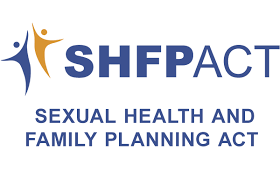Emergency contraception
What is emergency contraception?
Emergency contraception (EC or ‘the morning after pill’) is the use of contraception after unprotected sex in order to reduce the risk of pregnancy.
Situations where you might want to consider using emergency contraception in order to reduce the risk of unplanned pregnancy include:
- You didn’t use any contraception.
- Your partner didn’t withdraw in time.
- A condom broke or slipped off.
- You forgot to use your diaphragm or when you went to remove it, it had moved.
- You missed more than one of your oral contraceptive pills in a row (see section on the pill about missed pills for more information).
- You have a contraceptive implant and it is overdue for replacement.
- You are using the contraceptive injection and it is overdue for replacement.
- You have an IUD and it is overdue for replacement.
- You experienced sexual assault.
Emergency contraception does not cause an abortion, it will not interrupt an already established pregnancy.
What types of emergency contraception are available in the ACT?
There are three methods of emergency contraception available in Australia:
Oral emergency contraceptives
There are two oral emergency contraceptives available in Australia:
Levonorgestrel
This is a hormone-based emergency contraception which contains a hormone called Levonorgestrel. The sooner you take it the better but it works up to 72 hours (3 days) after unprotected sex. Levonorgestrel is a very safe and well tolerated medication with very few side effects.
How do you take it?
It is taken as a single dose of 1.5 mg Levonorgestrel in tablet form and is taken by mouth. It should be taken as soon as possible after sex and can be used up to 3 days afterwards.
How does it work?
It works by preventing or delaying ovulation. It does not cause an abortion or effect an existing pregnancy.
How effective is it?
Levonorgestrel EC is about 85% effective. The sooner after sex it is taken the more effective it is.
Are there any side effects?
Levonorgestrel EC is considered a safe and well tolerated medication. Side effects are not common however if they do occur they may include headache, tiredness, nausea and vomiting.
The most common side effect is a slight change to your menstrual pattern such as some spotting or a delayed period.
What if I am breastfeeding?
Levonorgestrel EC is considered quite safe to use while breastfeeding.
Where can I get it?
In the ACT you can get Levonorgestrel emergency contraception free from the Walk in Centres, The Junction Youth Health Service (if you are under 25) and from Canberra Sexual Health Centre.
It is also available at a fairly low cost from most pharmacies, and from SHFPACT. Wherever you get it you will need to talk to a nurse, doctor or pharmacist. They will ask you some simple questions and talk to you about using it.
Ulipristal Acetate (UPA) (Ellaone)
This is an emergency contraception that can be used up to 120 hours (5 days) after unprotected intercourse. UPA is a safe and well tolerated medication. It more expensive then the Levonorgestrel EC but is considered more effective.
How do you take it?
It is taken as a single dose of 3mg UPA in tablet form and is taken by mouth. It should be taken as soon as possible after sex and can be used up to 5 days afterwards. If you are using the oral contraceptive pill or mini pill UPA may affect the use of this so discuss this with the pharmacist.
How does it work?
It works by preventing or delaying ovulation (ovulation is the release of an egg by the ovary). It does not cause an abortion or effect an existing pregnancy.
How effective is it?
The exact effectiveness of UP is unknown however it is known to be more effective than the Levonorgestrel EC and can be taken up 5 days afterwards.
Are there any side effects?
UPA is considered a safe and well tolerated medication. Side effects are not common however if they do occur they may include headache, tiredness, nausea and vomiting.
The most common side effect is a slight change to your menstrual pattern such as some spotting or a delayed period.
What if I am breastfeeding?
If you use UPA when you are breastfeeding breastmilk should be expressed and discarded for one week after it is taken.
Where can I get it?
UPA is available from most pharmacies, it may be best to call beforehand to be sure that they do have it in stock. Wherever you get it you will need to talk to the pharmacist. They will ask you some simple questions and talk to you about using UPA.
The copper IUD
The copper IUD (intra uterine contraceptive device) is a method of contraception that can be used as emergency contraception. It is highly effective as an emergency contraceptive at more than 99%.
The copper IUD is inserted into the uterus up to 120 hours (5 days) after unprotected intercourse and is the most effective EC. It is useful for women who need a very effective EC or are also looking for an ongoing method of contraception. The hormone releasing IUD is not suitable as emergency contraception.
How does it work?
The copper IUD works by interfering with fertilisation and preventing implantation of a fertilised egg.
How effective is it?
The copper IUD is over 99% effective as an emergency contraception.
Where can I get it?
The copper IUD needs to be inserted by a specially trained doctor or nurse. For further information contact your local family planning, your GP, Marie Stopes Canberra, Gynaecological Centres Australia, or SHFPACT on 62473077 if you are in the ACT region.
Myths debunked!
Myth 1: Pharmacists choose not to sell the emergency contraceptive pill to others besides the person requiring the medication.
Pharmacists need to determine there is a therapeutic need for the medication so that often requires speaking directly to the person requiring the emergency contraceptive pill. They ask some questions to ensure safe use of the emergency contraceptive pill before providing the pill and explaining how to take it and discuss potential side effects.
Myth 2: The emergency contraception pill causes abortion and affects future changes of pregnancy.
The emergency contraceptive pills prevents or delays ovulation. They do not cause abortion at any dose and there is no evidence that if already pregnant, there is harm to a currently developing foetus. There is no impact on future fertility.
Myth 3: The timing of ovulation is predictable and modern contraception is unnecessary if you track your menstrual cycle.
While the average menstrual cycle is 28 days, no person’s menstrual cycle is exactly same and due to variations, the cycle can range between 20 to 40 days. This is why even clear knowledge of menstrual cycle is not enough to protect against an unplanned pregnancy.
Myth 4: There’s only one type of emergency contraception.
There are three! See the description on the left. The sooner you take the emergency contraceptive pill, the more effective it will be.
Myth 5: The emergency contraceptive pill provides ongoing protection against subsequent acts of unprotected sex.
The emergency contraceptive pill does not provide ongoing protection from pregnancy. The copper IUD is the only form of emergency contraception that provides ongoing contraceptive protection for up to 10 years.





